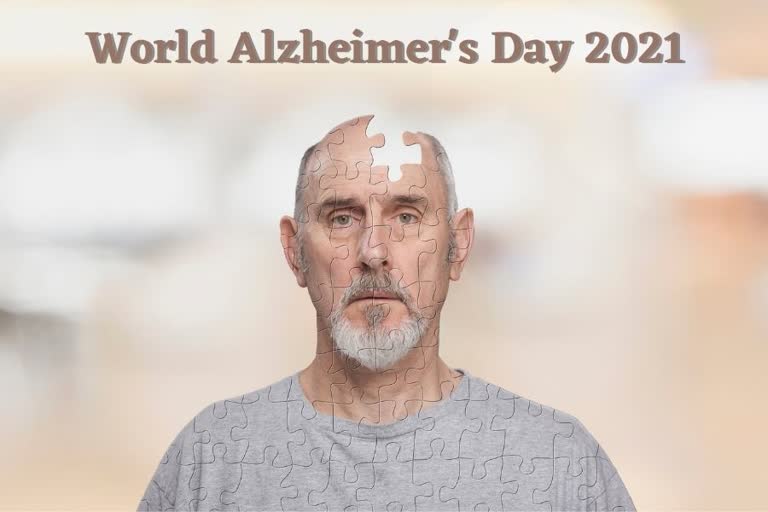Known as a disease of the elderly, Alzheimer's is a type of Dementia, which leads to memory loss as the condition progresses. As the condition gets severe, not just the nervous system, but other parts also start getting affected and the person loses control over his/her body and becomes completely dependent on others.
People need to be made more aware of this lethal disease, as according to a study, it was found that an average of 2 out of 3 people globally have little or no understanding of Alzheimer’s disease and associated dementia in their countries. Hence, every year on 21st September, World Alzheimer’s Day is observed and this year marks the 10th year of the day being celebrated. The Alzheimer’s month campaign was first launched in 2012 and has been celebrated since in the month of September. Also, this year, the theme is “Know Dementia, Know Alzheimer’s”.
History
Although the celebration of World Alzheimer's Day was started on 21 September 1994 during the annual conference of ADI in Edinburgh, the disease was first discovered in 1906 by the German psychiatrist and neuropathologist Dr. Alzheimer. Actually, at that time a woman had died due to a mental illness. During the observation of the cause of death, changes were observed in the brain tissue of the woman. The disease in the investigation was named Alzheimer’s and was categorized under fatal diseases. Also, not just a specific day, but the whole month of September is observed as World Alzheimer’s Month.
Alzheimer’s In Elderly
In an advisory issued by the Ministry of Social Justice and Empowerment and the All India Institute of Medical Sciences (AIIMS), New Delhi, it was stated that according to the 2011 census, there are about 16 crore elderly people (above 60 years) in the country, out of which about 8.8 crores are in the age group of 60 to 69 years, 6.4 crores in the age group of 70 to 79 years, 2.8 crores of 80 years of age, dependent on others and about 18 lakh elderly, who do not have anyone who can take care of them.
As per the statistics, more than 40 lakh people in India have some kind of dementia. According to the World Health Organisation (WHO), worldwide, around 55 million people have dementia, (Most of whom are elderly), with over 60% living in low- and middle-income countries. As the proportion of older people in the population is increasing in nearly every country, this number is expected to rise to 78 million in 2030 and 139 million in 2050.
Doctors and experts believe that this figure can be higher because most of the elderly are unable to contact doctors when this problem occurs due to lack of information, and other economic, social and family reasons.
Causes Of Alzheimer’s
It is not necessary that only old people begin to show signs of this disease. Sometimes, young people too may get diagnosed with this disease. Basically, this disease is not age-related and can possibly happen due to reasons like:
- Genetics: a history of Alzheimer’s in the family can up the chances of others of the same family being diagnosed with it.
- Head Injury: people who have had a severe head injury are likely to develop Alzheimer’s or dementia.
- Suffering from any other disease: sometimes people suffering from diabetes or heart-related disease may experience symptoms of Alzheimer’s. Therefore, it is important to get such comorbid diseases treated properly.
- Stress: risk of Alzheimer’s is more in people suffering from stress and other mental issues.
Signs And Symptoms Of Alzheimer’s
As one grows older, their brain functions begin to get affected, which makes it hard for them to remember tasks and people around them. But in Alzheimer’s apart from gradual memory loss, there are certain other symptoms that may be presented by the person suffering from this condition. This can affect their day-to-day tasks. Some of the symptoms are:
- Inability to perform common and easy tasks
- Difficulty in understanding things, directions and situations
- Changes in the mood, behavior and personality
- Hallucination and paranoia
- Repeating the words
- Restlessness and lack of concentration
- Isolating oneself from family and friends or communicating less with them
- Difficulty in talking to others and trouble communicating both orally and in writing
- Confusion about places, people and events
- Visual changes, such as trouble understanding pictures or images
However, it is to be noted that not all these symptoms may be presented by an Alzheimer’s patient at a time. The signs and symptoms may vary according to the stage of Alzheimer’s a person is on and may worsen as the condition progresses.
How To Deal With Alzheimer’s?
As of now, no exact treatment has been found for this disease. But doctors believe that physical and mental activity can be very helpful in avoiding dementia / Alzheimer's. Physicians believe that the quality of life of the patient can be improved by early detection and diagnosis of this disease. Early diagnosis can ensure proper treatment, i.e. treatment for the management of the symptoms and slowing down the progression of the disease.
Also Read: Midlife Loneliness May Up Dementia, Alzheimer's Risk



